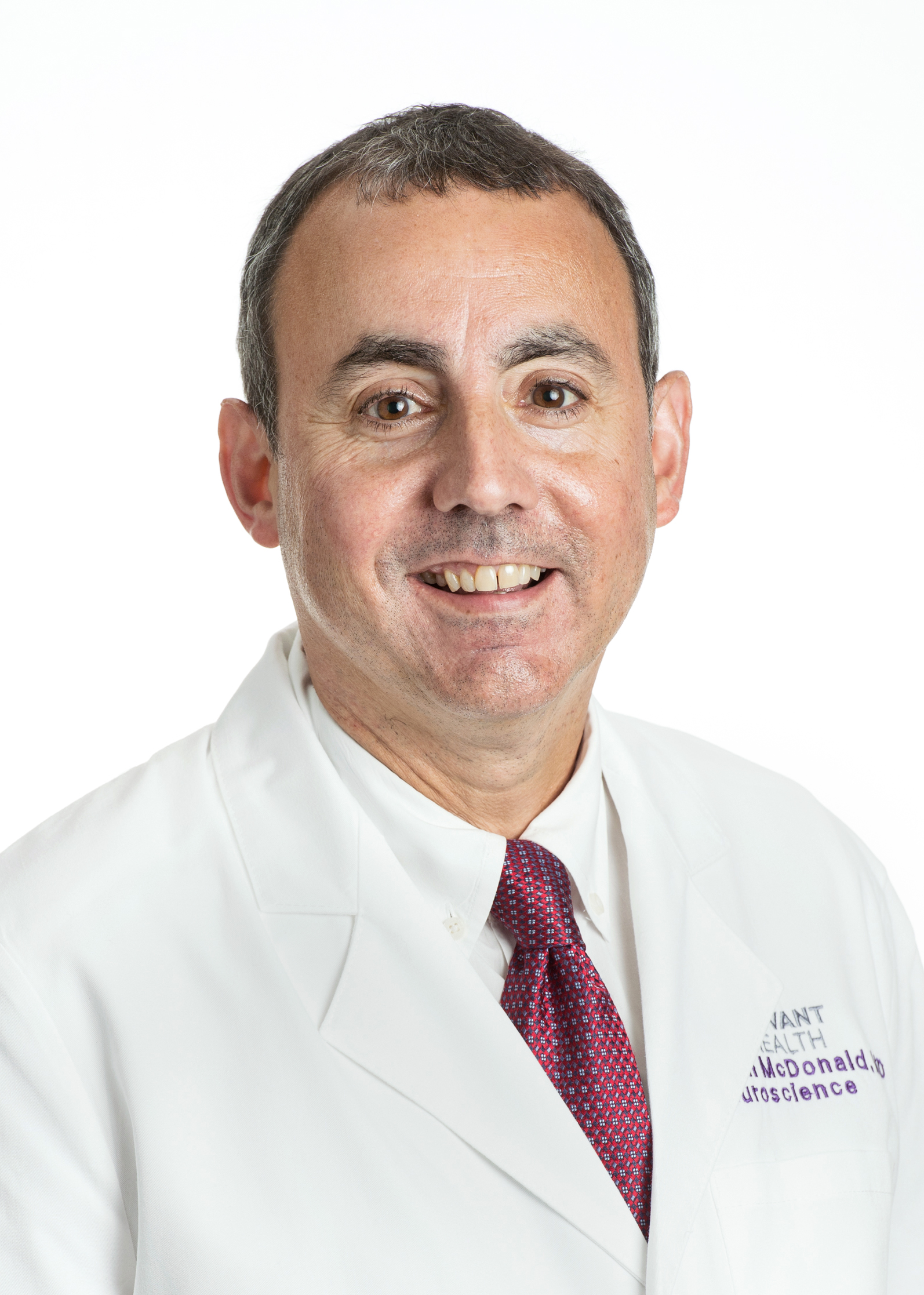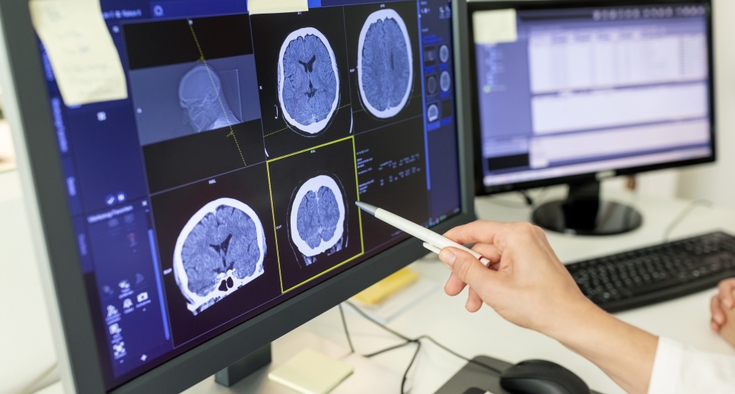With three Comprehensive Stroke Centers in North Carolina at Forsyth Medical Center | Novant Health, Novant Health Presbyterian Medical Center and Novant Health New Hanover Regional Medical Center, Novant Health is rapidly reducing response times for stroke patients.
One key strategy has been its switch from Alteplase to Tenecteplase for tissue plasminogen activators, allowing the hospital network to meet or exceed the top standard set by the American Heart Association Phase 3 Target: Stroke Guidelines of 30 minutes door to needle time.
Across the system, Novant Health implements an innovative communication strategy to save critical time for patients and care teams. "We highly rely on the Viz.ai platform in all of the Novant Health stroke programs," said Tom Curley, manager of the Comprehensive Stroke Center at New Hanover. "It's a communication tool that has an AI capability to detect large vessel occlusions, head bleeds, etc. We have implemented it in many of our spoke hospitals. With Viz.ai technology, we can see images immediately and notify the sending facility, via the app, that either (a) we need to get the patient here stat for treatment, or (b) they can treat the patient in their local facility."
Each center emphasizes rapid communication and handoff from EMS to hospital care teams. All processes, including the activation of a code stroke from the field by EMS, start before a patient arrives at the emergency department so the care team is ready upon arrival. The patient is met in the emergency department by the stroke team. A rapid assessment is performed prior to transport to CT. If the patient is eligible, the thrombolytic is given while the patient is still in CT. If the advanced imaging reveals there is a large vessel occlusion that is amenable to intervention, the patient is taken immediately to the neuro interventional suite for treatment.
New Hanover Regional Medical Center does a lot of outreach to encourage early activation of EMS. They educate the rural community about how to identify a stroke and make the time-sensitive call to 911 rather than driving long distances. "We were given a grant to provide advanced stroke life support (ASLS) training to our EMS agencies, so paramedics and EMTs know exactly where to bring the patient," Curley said.

At Forsyth Medical Center, highly trained EMS agents pre-notify the team. "Our partnership with local EMS agencies allows our hospital to have our stroke rapid responders waiting on arrival for incoming stroke patients," said Colin McDonald, MD, medical director of the comprehensive stroke program at Forsyth. To save more critical time, as soon as a stroke patient is admitted at Novant Health, they are moved straight to the CT room where the entire workup is performed.
The Presbyterian Medical Center process is similarly robust. "We pre-register the patient so they are in the system when they reach the door," said Annabelle Black, stroke market manager and stroke coordinator at Presbyterian. "EMS transports them to CT, where the neuro team meets them." Then the neurologist reads the CT scan in real time to see if this is an acute stroke or bleed.
Novant Health Comprehensive Stroke Centers are equipped with neurointerventionalists, neuroradiologists, neurologists and neurosurgeons who are available to care for patients 24/7. The physicians regularly perform advanced procedures, including mechanical thrombectomies and endovascular procedures used to treat aneurysm and ischemic stroke.
Each hospital has expanded capabilities relevant to their local patient needs.
At Forsyth Medical Center, the key differentiator for rapid response times is the availability of a neurohospitalist and rapid response team with a dedicated neurology ICU RN around the clock. "We have an entire team of dedicated neurohospitalists who are assigned to the emergency room for 24/7 coverage — it's unique," said Amber Jones, chief nursing officer at Novant Health Kernersville Medical Center.
For New Hanover Regional Medical Center, keeping rural patients closer to home is a significant part of its mission. It opened the Novant Health Neurosciences Institute - New Hanover in Wilmington in 2023 to provide the top of line care for the area’s huge rural region. The institute contains the Comprehensive Stroke Center as well as three patient care floors, four dedicated operating rooms, intensive care and step-down units, plus two interventional suites.
At Presbyterian Medical Center, the Novant Health Neurosciences Institute has similar benefits, with a neuro ICU, a neuro stepdown unit and a stroke neurosciences unit. Additionally, Presbyterian strives to provide strong follow-up for patients. That includes support for patients with limited resources, including travel vouchers, and 30 days of free medication.
To round out stroke care across the system, the Novant Health Stroke Bridge Clinic exists to bridge the gap from hospital admission back into the community. After discharge, the Comprehensive Stroke Centers support patients to make sure they get the follow-up they need to return to their previous state as quickly as they can, from neurology coverage to connecting with an outpatient neurologist.
To work with stroke and neuroscience experts or refer a patient, visit Stroke Services | Novant Health.
Forsyth Medical Center: 336-718-5000
Presbyterian Medical Center: 704-384-4000
New Hanover Regional Medical Center: 910-667-7000






